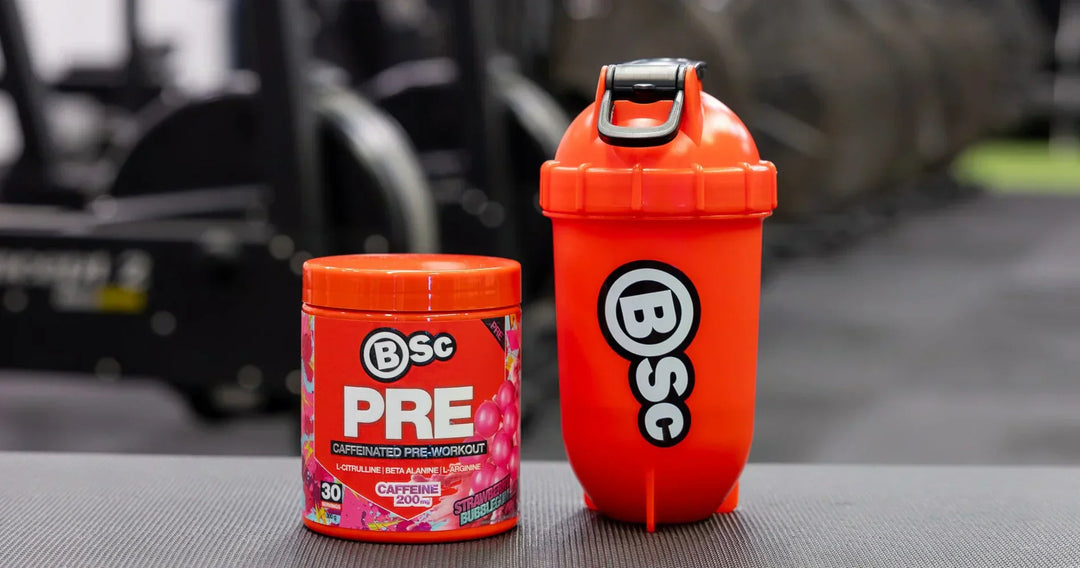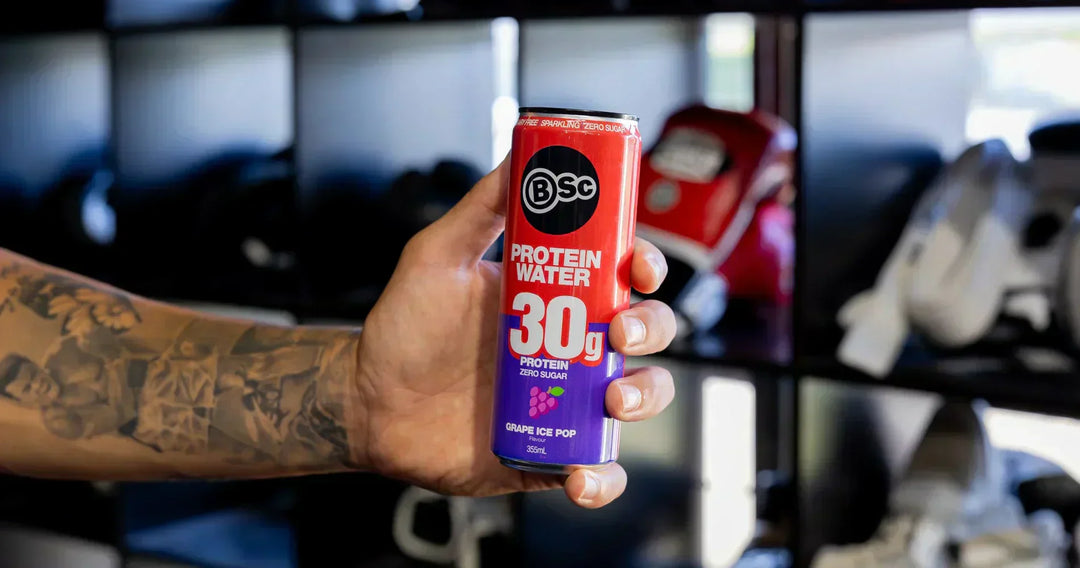Hi, it’s Dr Craig Duncan here and I'm a performance scientist. Today, we're going to chat about sleep, productivity, self-awareness, and morning routines.
All these things to get your day started right and to get you working to your maximum because that’s what life’s all about; it is trying to maximise your potential in these critical areas.
What we know about sleep, it's a problem for many, many people and becoming more of an issue as we get into this busy lifestyle where everything is going to go, go, go. Unfortunately, I think when we are like that, we start to miss how important life is in general, and enjoying life. Much of this has to do with this busyness that we have. With sleep, there are some critical things that we need to do. We need to try and get to bed at the same time each day. If we can get into this routine, we're going to be better off. Going to bed at the same time and waking up at the same time. Historically, people used to go to bed when it got dark, and they woke up when it got light, but because of the influx of artificial light, this has changed things.
The other problem that we have is we have all this technology around us from televisions but more importantly all the blue light that is coming out of the mobile phone that we have in front of the face and our iPad. There are some really easy steps that you can do to start to get your sleep much more organised.
In the hour leading to sleep, or when you decide to go to bed, what we need to start to do is calm our mind. We can't do that if we're searching the internet or we’re on social media. Start to decrease that. If you still need to do that before you go to bed, there are things that you can do; you can wear special glasses that block the blue light, and this will help. What we want to do is get our system right for sleep, so we need to start to calm our mind and move into that.
We were talking about going to sleep at the right time. Say it's 10 p.m, so from about 9 p.m we start to reduce everything that's going on around us. Way back in the old days, you'd probably remember your grandparents might just read a book before they go to bed and there's nothing wrong with that.
Other things that you can do is keep a journal in the evening and just writing how your day went, and then getting any of your concerns outside of your mind and down on the paper because sleep isn't the time to start worrying about the future. The other thing that you can do is work on the environment that you sleep in.
We know that we need a set temperature in our room. It can't be too hot, and it can’t be too cold. Around 18oC will be good for that. We want it to be dark, as well, so we don't want bright lights on, or lights illuminating from clock radios or digital devices, we want to be dark.
We also like to keep it clean; if there's clutter in your room, it's not going to help your sleep. These are just a couple of things that make all the difference. We also know that caffeine is going to affect you as well. Maybe you just had your last caffeine at about 3-4 p.m. and that's going to help you. I mean, all of this depends on you as a person because we are all unique.
If you are having these troubles with sleep, then you can start to think about some of these things because sleep leads to that concept of being more productive. You know the problem with sleep is that if you're having poor sleep, you're going to have fatigue in the day, you're going to wake up tired, and it's just going to get worse and worse. You need to get started on a really good place and then get your day off to an excellent start. One of the ways to do this is to have a set morning routine, and I've spoken about this many times before.
We all have routines throughout life, but one of the ones that I advocate is morning journaling. If you can become a more reflective person, and you've got time in the morning to do this, just try it for a short amount of time, and you'll start to see how much better life becomes. Just sit down with a journal identifying what you want to achieve for the day, any concerns that are on your mind, what will make today great, simple things like what are you grateful for?
Whatever it is, whatever works for you, you can do this, and it only needs to be 5 or so minutes. Just getting up, doing what you need to do, sitting outside for a few minutes. There's a lot of talk about mindfulness, and we hear it all the time in meditation. I find, personally, meditation very difficult, however, know 100% it will make all the difference if I can get it right.
There are several forms of meditation that you can do, including mindfulness, and this can be part of your morning routine. It's about finding what's right for you. Even if you can sit for just 5 minutes after you've done your journal, or before you've done your journal, just sit and concentrate on your breathing, or just look into the distance and appreciate what we have. You're going to be nice and calm moving into the day. Some people like to exercise in the morning, and that's fantastic as well. Whatever we do, we don't want just to get up, rush out the door, and before we know it, we don't even know what we're trying to achieve.
Take the time, it's not a lot of time, and as you get into the habit, it can build up. I will also talk about self-awareness. I think this is also critical for productivity and, generally, having an excellent life. Often our day gets hijacked by us just not being aware of where we are at, physically and psychologically. Have you ever been in that situation where before you know it someone said something to you and you've snapped at them, you've just gone off on them, and you think, where did that come from? Where it came from is not being aware of your physiological and psychological state. If you've only had a few hours of sleep the night before, that's going to lead you to be fatigued and not at 100%.
You can trackback your awareness in your journal. In the journal in the morning, if you identify where you're at, just some basic numbers that you can record may be: How is my sleep out of 10? How am I feeling? What's my fatigue levels? Any of that stuff is going to make you more aware when you get to the office or get to where you're going. When you have to perform, and someone says something to you that raises an emotion, you're going to have that space in between to be able to go, hang on I know I'm not 100% today.
The other thing it could be, when you're going into an important meeting, identifying exactly where you’re at physically and psychologically before you step into that meeting. You might be vulnerable to making a poor decision, but if you can be aware, all these things are going to be taken away. We do this in high-performance sport. At all times, we monitor athletes so we identify exactly where they are, physiologically and psychologically. I think it's important for sports, but I think it's more important for us in everyday life that we start to become aware. That leads to productivity. Productivity is the outcome of these steps.
There's more that goes into it, but today we'll talk about the fact that we can't be productive, or maximise our productivity, if we don't sleep well, or if we don’t have some form of a routine in the morning. Also, if we don't get nutrition and exercise - and we'll be talking about that in the next few weeks - it also affects productivity. I think there is so much information about being more productive and getting it right, but I think we missed the critical step about being where are we at physiologically and psychologically.
We can have all the advice we want to about how to handle an email or how to be more efficient at work, but if we're not right in ourselves, that's not going to be possible. I think productivity is an outcome related to these other critical areas. There is an equation that I will say concerning performance: performance = your capacity x your motivation - what I term “the noise”. The noise is things like fatigue, stress, and all that sort of stuff which takes away from your overall performance and your motivation. Your motivation is going to decrease if you don't have these critical steps in place. I don't know if we always realize just how important getting these foundations right is.
We're thinking about maximising our performance and being more productive wherever we are, but it's so common that we haven't got the noise right, we haven't fixed that up. Even though we might increase our capacity, if we're increasing the noise at the same time, our stress levels are up, our fatigue is up because we're trying to be more productive by working late into the night. If you’re not getting the sleep right, there's no chance the outcome of that is going to be positive. These are just simple things that we need to work on. They are very simple, and I think in our busy lifestyles we've just missed it.
I'm going to talk about this over the next few weeks. Start to think about that. It's not going to happen overnight, that's the other thing. Too often, we expect things to just happen like that, but if you know you're starting with the ending mind you can identify the issues, you can reflect each day on what is going on and then move towards this lifestyle that has all this in order, then you will become more productive and performance will increase.




